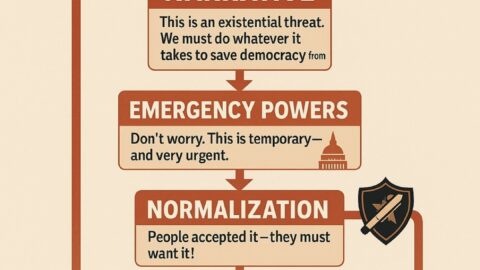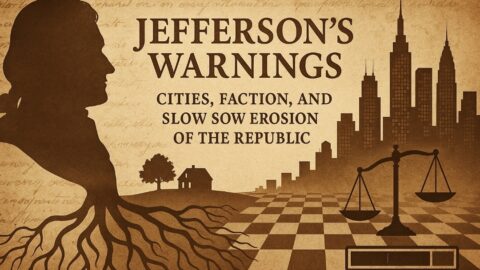Understanding Divorce Regret Through the Lens of Character, Paradigms, and Self-Deception
Purpose: A marriage counseling resource to help individuals and couples understand the deeper dynamics behind divorce regret and how to prevent emotionally-driven decisions that may later be regretted.
Section 1: The Anatomy of Divorce Regret
In marriage counseling, one of the most emotionally charged moments comes when a partner admits, “I regret the divorce.” This isn’t always immediate. Often, it’s months or years later, after emotional dust has settled, and the true costs begin to surface: emotional, relational, spiritual, and financial.
Key Insight: Regret usually stems from a realization that the decision to divorce was made in a fog of emotion, social validation, and self-deception rather than based on truth, responsibility, and humility.
Section 2: Idiot Compassion vs. Wise Compassion
Coined in psychological and spiritual circles, idiot compassion refers to friends and family who, with good intentions, blindly support someone without challenging their narrative. During a divorce, this looks like:
- “You deserve better.”
- “They never appreciated you.”
- “You’re doing what’s best for you.”
Contrast this with wise compassion, which asks:
- “What was your role in the breakdown?”
- “Are you reacting out of unresolved hurt or bitterness?”
- “Have you considered long-term consequences over short-term relief?”
Counseling Strategy: Encourage clients to seek mentors or therapists who will lovingly challenge their perspective—not echo it.
Section 3: The Arbinger Institute’s ‘Inside-the-Box’ Self-Deception
The Arbinger framework explains how individuals deceive themselves by viewing others as objects: enemies, obstacles, or tools. In this state, the spouse becomes a caricature of their worst qualities, and the individual justifies every action against them.
When regret hits:
- When the spouse moves on gracefully.
- When children express confusion or pain.
- When repeated relational patterns emerge.
- When the individual steps “outside the box” and sees their ex-partner as a human being again.
Counseling Application: Help clients examine their narrative. Ask, “Are you seeing your spouse as a person or as an object in your story?”
Section 4: Stephen Covey’s Character vs. Personality Ethics
Covey emphasized that sustainable relationships are built on character ethics: integrity, loyalty, responsibility—not personality ethics, which focus on image, style, or emotional comfort.
Divorce often comes when:
- Happiness is redefined as the absence of discomfort.
- Responsibility is abandoned for temporary emotional relief.
- Short-term feelings override long-term values.
Counseling Tip: Invite couples to reflect on their core values and what kind of character they want to cultivate, not just what they want to feel.
Section 5: Life Centers and Paradigms
Covey also described various life centers: spouse-centered, child-centered, money-centered, etc. Many people enter marriage with distorted paradigms:
- “My spouse exists to make me happy.”
- “If I’m uncomfortable, something must be wrong.”
When those paradigms collapse, instead of recalibrating, people often run—believing the paradigm was fine, but the partner was wrong.
Counseling Prompt: Ask, “What center is your life orbiting around? Is it rooted in principles or emotions?”
Section 6: Emotional Affairs and Divorce Decisions
Emotional affairs often prelude divorce and serve as a powerful yet dangerous escape hatch. The new connection seems to offer:
- Validation
- Attention
- Understanding
But these relationships are usually formed inside the box, rooted in fantasy, not reality.
Post-divorce regret sets in when:
- The emotional affair ends or becomes dysfunctional.
- The partner realizes they left something real for something temporary.
Counseling Warning: Reinforce boundaries and encourage emotional honesty early. Ask, “Are you seeking connection outside to avoid doing the inner work within?”
Section 7: The Echo of Children
Nothing mirrors regret like children growing up and asking:
- “Why did you leave?”
- “Couldn’t you have tried harder?”
- “Was I the reason?”
These are soul-piercing questions. If the answers aren’t rooted in truth, they can cause generational wounds.
Counseling Challenge: Prepare clients for these questions long before they come. Help them create honest narratives rooted in both accountability and empathy.
Section 8: Rebuilding or Preventing Regret
Regret can be a turning point. Not all is lost.
For couples on the brink:
- Pause the legal process.
- Re-explore shared values.
- Use counseling to expose blind spots and rebuild empathy.
For individuals post-divorce:
- Journal the real reasons behind the divorce.
- Seek reconciliation, even if it’s just emotional.
- Commit to healing your internal narrative before starting over.
Conclusion: Divorce is rarely just the end of a marriage. It’s the collapse of a narrative—and the truth always survives the ruins.
As counselors, our role is to gently guide individuals and couples out of self-deception, into truth, and back toward wholeness—whether that’s through reconciliation or growth post-divorce.
As counselors, our role is to gently guide individuals and couples out of self-deception, into truth, and back toward wholeness—whether that’s through reconciliation or growth post-divorce.
Optional Counseling Activity: Worksheet
Mapping Your Divorce Narrative: Covey & Arbinger Framework
Part 1: Inside or Outside the Box? (Arbinger)
- Describe your view of your spouse during the hardest times in your marriage.
- Did you see them as a person or as an obstacle to your happiness?
- In what ways did you justify your negative behavior or thoughts?
- Are there patterns that repeated in other relationships?
Part 2: Character or Personality Ethic? (Covey)
- Reflect on your guiding values during your marriage. Were they rooted in long-term character or short-term comfort?
- List actions you took that reflected character ethics. List those that reflected personality ethics.
- What kind of spouse did you strive to be?
Part 3: Paradigm Reflection
- What expectations did you bring into the marriage about love, happiness, and roles?
- Were these expectations based on principle-centered thinking, or feeling-centered reactions?
- What beliefs may have set you up for disappointment?
Part 4: Life Center Evaluation
- Was your life spouse-centered, self-centered, career-centered, or principle-centered?
- How did that affect your choices and emotional responses?
Part 5: Compassion Check
- Did you seek advice from those who told you what you wanted to hear or what you needed to hear?
- Write down one moment of idiot compassion and one moment of wise compassion you experienced.
Part 6: Children & Legacy
- How do you think your children (if any) experienced the divorce?
- What questions might they ask in the future? How will you answer them honestly and responsibly?
Part 7: Emotional Honesty
- Were there any emotional affairs or validations that clouded your judgment?
- What did they offer you that your marriage lacked—and why?
Final Reflection:
- What parts of your narrative are true, and which are self-justifying?
- What would your story sound like from your ex-spouse’s perspective?
- What truths are you now willing to face—and how can they help you heal or rebuild?
Use this worksheet as a journal, a therapy guide, or a discussion tool in counseling sessions.







